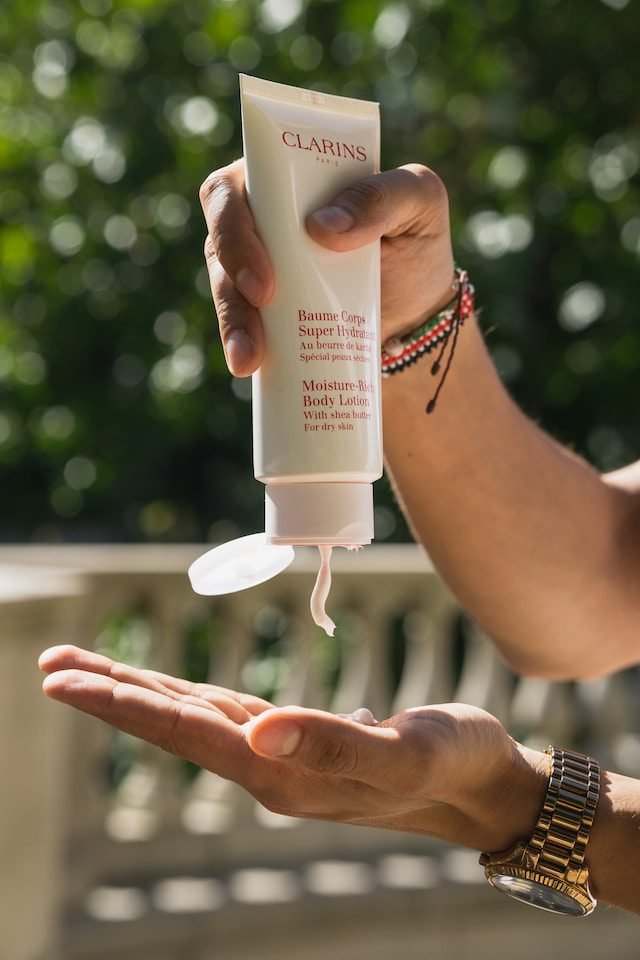There is a common misconception that hyaluronic acid can darken the skin. No, hyaluronic acid does not darken the skin. The claim that hyaluronic acid darkens the skin is a common misconception and is not supported by scientific evidence.
In this blog post, we will explore this claim and provide a clear understanding of whether hyaluronic acid can actually lead to skin darkening.
Hyaluronic Acid and Skin Darkening
There is a widespread belief that hyaluronic acid can darken the skin, leading to concerns among individuals considering its use in their skincare routine. It’s important to clarify that this claim is not supported by scientific evidence.
It is crucial to differentiate between skin darkening and hyperpigmentation. Skin darkening refers to a general increase in overall skin tone or complexion, while hyperpigmentation refers to localized areas of increased pigmentation, often caused by factors such as sun exposure, hormonal changes, or skin inflammation.

Debunking The Claim Of Hyaluronic Acid Darkening Skin
Multiple studies have examined the effects of hyaluronic acid on skin pigmentation and have found no evidence to support the claim that hyaluronic acid darkens the skin.
In fact, hyaluronic acid is known for its hydrating properties, which can improve skin texture, tone, and overall appearance.
It is important to note that hyaluronic acid does not directly affect melanin production in the skin. Melanin production is primarily regulated by genetic factors and various external influences like UV exposure and hormonal changes.
Based on scientific evidence, hyaluronic acid does not cause skin darkening. On the contrary, it offers hydration, and plumping effects, and can even help reduce hyperpigmentation.
It is essential to rely on accurate information when making decisions about skincare, and the evidence overwhelmingly supports the safety and benefits of hyaluronic acid in skincare routines.
What Hyaluronic Acid Does For The Skin
Hydration and plumping effects
One of the key benefits of hyaluronic acid is its exceptional ability to attract and retain moisture. It acts as a humectant, drawing water molecules from the environment and binding them to the skin, resulting in intense hydration. This moisture infusion helps to replenish and restore the skin’s moisture balance, giving it a plumper and more supple appearance.
Improves skin texture and tone
Hyaluronic acid’s hydrating properties contribute to improved skin texture and tone. Delivering ample hydration, it helps to smooth out rough patches, minimize the appearance of fine lines and wrinkles, and promote a more youthful-looking complexion. With regular use, hyaluronic acid can enhance the overall smoothness and radiance of the skin.
Reduces hyperpigmentation
Although hyaluronic acid does not directly lighten the skin, it can play a supportive role in reducing hyperpigmentation and skin discoloration. As mentioned earlier, hyaluronic acid can help inhibit the production of melanin, which is responsible for the darkening of the skin in areas of hyperpigmentation. By promoting a more even skin tone, hyaluronic acid can contribute to a brighter and more uniform complexion.
Scar reduction
Hyaluronic acid has been found to possess properties that support wound healing and scar reduction. It creates a favorable environment for the skin to repair itself by promoting tissue regeneration and reducing inflammation. When applied to wounds or scars, hyaluronic acid can help accelerate the healing process and minimize the appearance of scars, resulting in smoother and healthier-looking skin.
Conclusion
In conclusion, the claim that hyaluronic acid darkens the skin is unfounded and not supported by scientific evidence. Hyaluronic acid, instead, offers a multitude of benefits for the skin.
It is a powerful hydrating agent that helps to retain moisture, resulting in improved skin texture, plumpness, and a more youthful appearance.
Moreover, hyaluronic acid can contribute to reducing hyperpigmentation and promoting a more even skin tone. While it does not directly lighten the skin, its ability to inhibit melanin production can support the fading of dark spots and contribute to a brighter complexion.
Its overall effects on skin health, such as strengthening the moisture barrier and protecting against external aggressors, further enhance its value in skincare routines.





